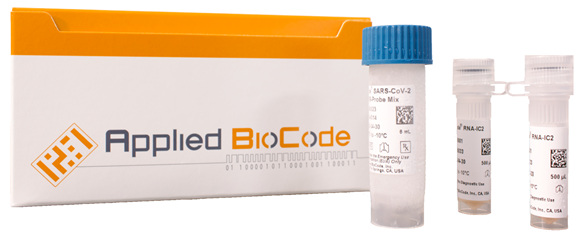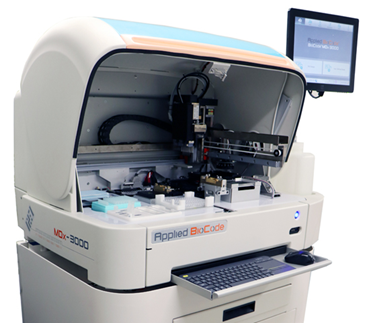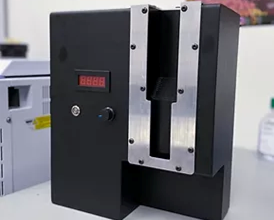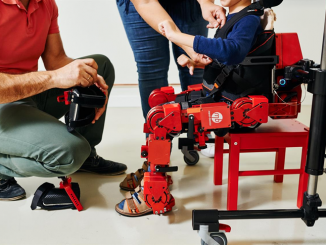
November is Magnetic Sensing Month at Magnetics Magazine!
Stay tuned and check the website frequently for new updates on the latest technology for magnetic sensing.
The value of magnetic particles for life science diagnostics is gaining recognition in biomedical testing laboratories as they race to find new techniques for rapid detection of Covid-19. One company paving the way is Applied BioCode, developer of an innovative Barcoded Magnetic Beads technology, whose SARS-CoV-2 Assay was granted emergency use authorization by the U.S. Food & Drug Administration.
The assay is a high-complexity multiplex nucleic acid array for the qualitative detection of SARS-CoV-2 nucleic acids in respiratory samples including nasopharyngeal swabs, nasal swabs, oropharyngeal swabs and bronchoalveolar lavage from individuals who are suspected of COVID-19 by their healthcare provider.

It runs on the company’s MDx-3000, an automated molecular diagnostic system. The assay can deliver up to 564 sample results in a day to ramp up COVID-19 testing needs. It is designed to detect two different regions of the SARS-CoV-2 virus N gene which are also utilized by the Center for Disease Control’s emergency use authorization. It can be run as an independent assay or in parallel with the company’s FDA-cleared Respiratory Pathogen Panel for a more complete respiratory infection profile of patients.
“We are extremely pleased to provide our BioCode SARS-CoV-2 Assay with the high throughput automated MDx-3000 system to help with the fight against the Covid-19 pandemic,” said Dr. Winston Ho, Ph.D., Applied BioCode’s president. “Our automated assay can provide CLIA high complexity laboratories with the capability to perform high throughput, walk away testing to meet the testing needs.”
Based in Santa Fe Springs, California, Applied BioCode is a manufacturer of in vitro diagnostic products that has combined digital barcodes with immuno- and molecular chemistry to create its Barcoded Magnetic Beads technology. The beads, about the diameter of a human hair, are tagged with immunochemistry or molecular probes, allowing the digital barcodes to be easily scanned and accurately identified up to 4,096 barcodes with no ambiguity for biological targets. For more info, see www.apbiocode.com.



